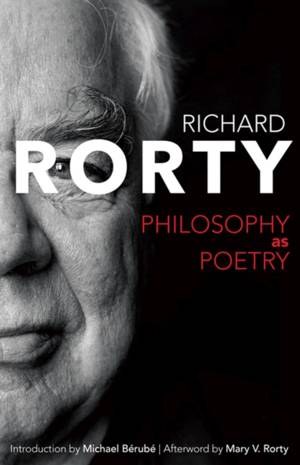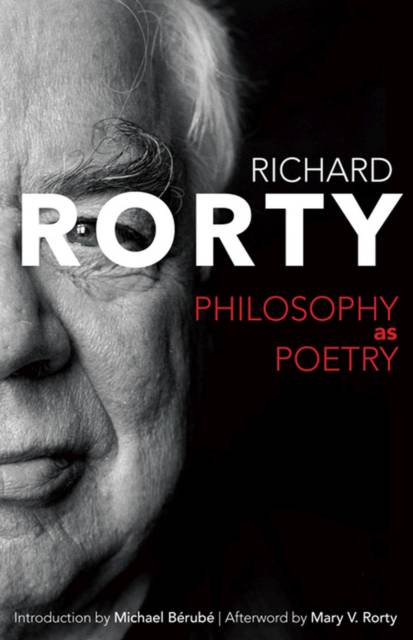
- Afhalen na 1 uur in een winkel met voorraad
- Gratis thuislevering in België vanaf € 30
- Ruim aanbod met 7 miljoen producten
- Afhalen na 1 uur in een winkel met voorraad
- Gratis thuislevering in België vanaf € 30
- Ruim aanbod met 7 miljoen producten
Omschrijving
Undeniably iconoclastic, and doggedly practical where others were abstract, the late Richard Rorty was described by some as a philosopher with no philosophy. Rorty was skeptical of systems claiming to have answers, seeing scientific and aesthetic schools as vocabularies rather than as indispensable paths to truth. But his work displays a profound awareness of philosophical tradition and an urgent concern for how we create a society. As Michael Bérubé writes in his introduction to this new volume, Rorty looked upon philosophy as "a creative enterprise of dreaming up new and more humane ways to live."
Drawn from Rorty's acclaimed 2004 Page-Barbour lectures, Philosophy as Poetry distills many of the central ideas in his work. Rorty begins by addressing poetry and philosophy, which are often seen as contradictory pursuits. He offers a view of philosophy as a poem, beginning with the ancient Greeks and rewritten by succeeding generations of philosophers seeking to improve it. He goes on to examine analytic philosophy and the rejection by some philosophers, notably Wittgenstein, of the notion of philosophical problems that have solutions. The book concludes with an invigorating suspension of intellectual borders as Rorty focuses on the romantic tradition and relates it to philosophic thought.
This book makes an ideal starting place for anyone looking for an introduction to Rorty's thought and his contribution to our sense of an American pragmatism, as well as an understanding of his influence and the controversy that attended his work.
Page-Barbour Lectures
Specificaties
Betrokkenen
- Auteur(s):
- Uitgeverij:
Inhoud
- Aantal bladzijden:
- 96
- Taal:
- Engels
- Reeks:
Eigenschappen
- Productcode (EAN):
- 9780813939339
- Verschijningsdatum:
- 7/12/2016
- Uitvoering:
- Hardcover
- Formaat:
- Genaaid
- Afmetingen:
- 127 mm x 203 mm
- Gewicht:
- 231 g

Alleen bij Standaard Boekhandel
Beoordelingen
We publiceren alleen reviews die voldoen aan de voorwaarden voor reviews. Bekijk onze voorwaarden voor reviews.











